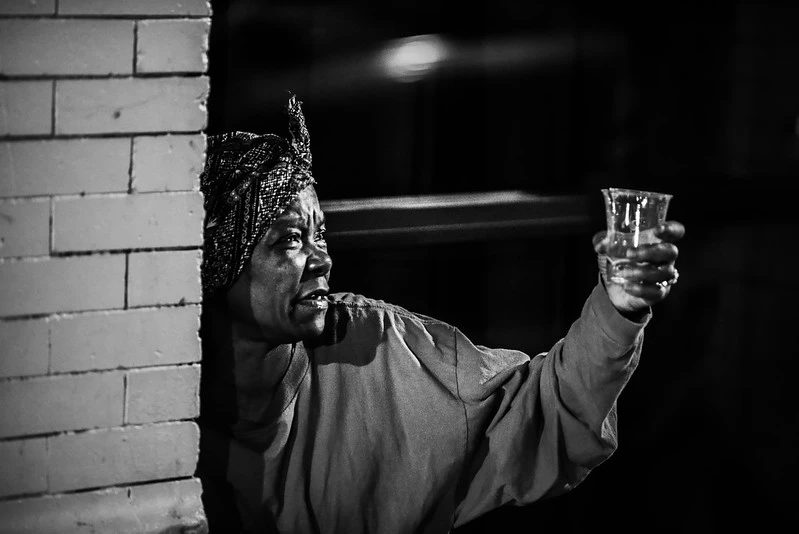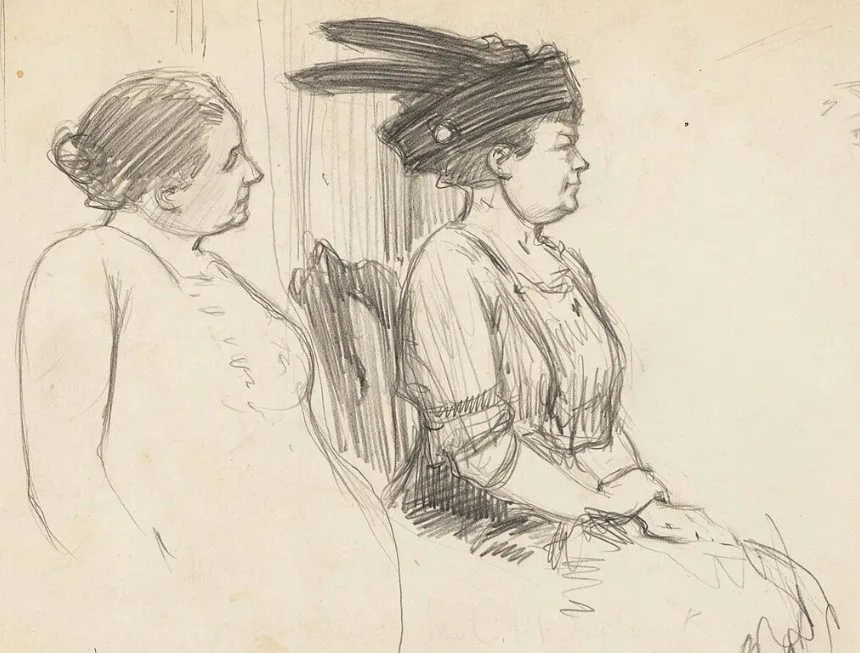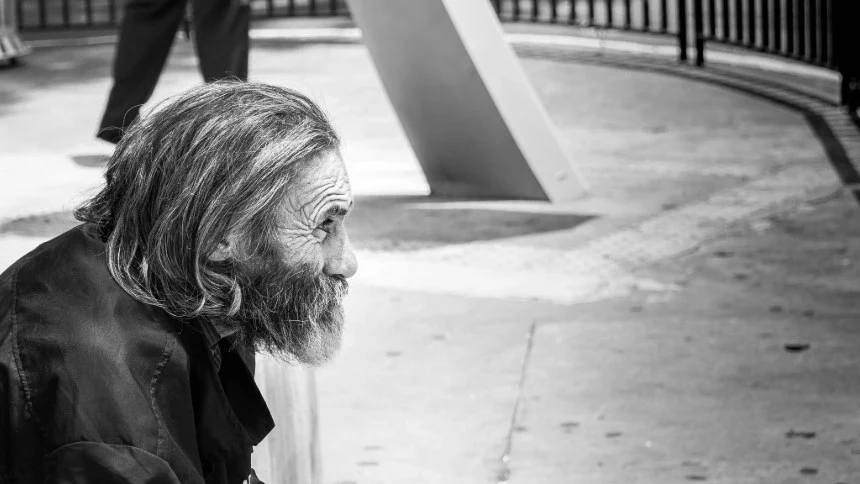“I think so much of neoliberalism and capitalism has caused people to live in a state of greed, fear and consumption that is covering up so much of what we really want.”
What we really want is to be cared for and to care for others. This idea is so simple that it appears mundane and perhaps naïve. Yet, care is something we can all do and contribute to society. All humans have experienced caring. We need care from gestation through death. As I argued two decades ago, our bodies are built to care (Embodied Care), because of our physical skills to touch, listen, focus, and respond to others.
Given the insidious spread of neoliberal ideas, a resistance movement is needed: a care revolution.
To be human is to care and be cared for, given our fundamental interdependence. However, sometimes, we forget our interdependence and vulnerability. Neoliberal thinking is particularly egregious at ignoring human frailty. What if we placed care at the center of a social transformation?
Neoliberalism
The dominant force of contemporary life, neoliberalism, can be described as a story in which productivity, accumulation, and achievement through competition are the nature of humanity. It is increasingly clear that the storyline needs retelling.
What if a vision of a better world came from something we know and are skilled at? Care.
Free-market neoliberalism is failing humanity by creating unnecessary disparity and suffering (Care Ethics in the Age of Precarity). Thus, despite developing unprecedented wealth, astounding technological advances, and miraculous medical breakthroughs, a contemporary crisis of care exists.
Neoliberalism is supported and interwoven with other contemporary oppressions, including identity-based persecutions such as racism, sexism, homophobia, and xenophobia.
The welfare state policies and practices, including social infrastructure support, are being rolled back.
Distorted arguments of inefficiency, unfairness, or social necessity are often employed to maintain the economic advantages of the privileged.
The Black Lives Matter movement started as a response to the murder of black Americans through unnecessary police force, but the roots of the problem include social and economic discrimination. The rallying call, “Black Lives Matter,” is more than a demand for criminal justice reform; it is an appeal to care that requires a social movement: a revolution.
Care As Political Resistance
Given the insidious spread of neoliberal ideas, a resistance movement is needed: a care revolution. The need and desire for care cuts across ideological, cultural, and identity lines. If any idea can unite people under a common value, it is care.

This shared connection to care is particularly true because of our shared embodiment. We witness a deeply rooted sense and understanding of care in disasters when people come together to help one another despite social divisions. This spirit needs to emerge in response to the current market oppression more widely and regularly.
In Revolutionary Care: Commitment and Ethos, I offer a vision for a care revolution that ties the local to the global and the personal to the political.
“Care ethics” developed out of dissatisfaction with how traditional moral philosophy failed to address the relational and contextual aspects of ethics. Subsequently, care political theory evolved as a corrective to similar concerns about liberalism. Outside of the academy, social commentators and politicians have begun to address the value of a care-based society. To give such efforts momentum, we need a care movement, or better yet, a care revolution.
Humanity has witnessed social and political revolutions come and go. Each revolution has a vision of a better life by overthrowing the past and replacing it with the new. What if a vision of a better world came from something we know and are skilled at? Care.
A Book About Care’s Revolutionary Potential
In Revolutionary Care: Commitment and Ethos, I offer a vision for a care revolution that ties the local to the global and the personal to the political. This future is not a Pollyannish utopia where the goal is universal happiness through caring. Care is not an ideal state, but it is a practice and value that often entails challenging work and difficult decisions. Revolutionary Care describes a revolutionary process of improvement focusing on better caring skills and methods. We can get better at caring individually and collectively if we value, discuss, reflect, and practice care.
I argue that to be an ethical person, one should commit to caring for others.
Each chapter begins with an extended story about care undertaken in circumstances both extraordinary and unextraordinary.
For example, I explore the transformation of David Black from a prominent young voice for white supremacists to a critic of racist organizations, a shift that he credits to caring relationships with fellow students.
This anecdote reveals the radical potential of care to create moral epiphanies.
After contextualizing the importance of care in the introduction, the book’s first section provides the theoretical grounding for the arguments. The primary concern is characterizing good care because care can be invoked paternalistically by those who use the term without desiring to advance the flourishing of others.
Rather than a prescriptive approach that ignores contextual and cultural differences, care is viewed as existing on gradations along a continuum of effort required to meet the needs of the one cared for. Good or effective care is created through humble inquiry, inclusive connection, and responsive action. Simply stated, listening and understanding others (and ourselves) with empathy is essential to meeting needs.
Care Morality
Care is also addressed as having a different kind of normative character than philosophers are used to. The norms of care are emergent. In other words, I do not know how to care for someone until I am in the situation and understand the context entirely. That is why being attentive to the ones cared for is so important.

For public policy issues, involving those who are the program’s subjects is crucial, such as developing social practices regarding people experiencing homelessness in conjunction with those unhoused. The emergent nature of moral norms in care is also why methods and skills are more important than definitive rules.
Care is a process of skill development aiming toward improvement.
The opening group of chapters also emphasizes care as a categorical moral commitment. The concept of commitment is essential because it indicates an internal dedication rather than an external imposition. The assignment of care responsibilities is often necessary, particularly when individuals shirk them, thus receiving more than they provide despite their capacities (Joan Tronto, Inge van Nistelroij, and Merel Visse).
However, when ethical rules are imposed upon someone, they may not have the same motivation to comply, resulting in moral game-playing. Commitment suggests a taking of responsibility that the individual owns. I argue that to be an ethical person, one should commit to caring for others.
The theoretical section of the book concludes with a discussion of a care ethos or a spirit of care. This ethos is a non-religious method of addressing a care spirituality—a palatable contagion that can be co-created and shared. This contagious spirit can spur the care revolution. A community dedicated to care can raise moral norms and model behavior for one another.
Invitations to Radical Care
The second section of the Revolutionary Care asks the reader to take imaginative flights of fancy into ideas about society that, in some circles, are considered radical. Because care theory is not prescriptive in specific ways, such as providing rules, this section is a series of invitations and provocations to think differently with care at the center of our social and political choices rather than its current marginalized state.
- The first invitation is to consider embracing feminism in its inclusive, decolonial, transnational, critical race, queer, and trans-affirming form as a method to resist certain types of masculinity that denigrate caring. Feminism supplies tools for living the examined life, including sensitivity to power dynamics, honoring differences, and exploring emotions. The image of stoic, solitary men who eschew their needs for connection and suppress their feelings in favor of competitive mastery is prevalent but a harmful archetype to emulate for themselves and those around them.
- The second invitation is to socialism. This call is not for any particular socialist economic configuration but rather for an economy that places society at its center. Thus, the well-being of the many takes precedence over rules for material accumulation. An emphasis is placed on labor unions, progressive income tax, infrastructure development, and imagining what governments can do rather than fixating on scarcity.
- The third invitation is to humanism. The emphasis in this section is on the role of religion in the caring character of society. Religions can be a source of motivation and inspiration for caring and, as such, a force for good. However, when religious ideology and doctrines are enforced to divide and denigrate populations, such as in the oppression of non-binary people, then religious policies and practices must be questioned on moral grounds.
- The fourth and perhaps most controversial invitation is to veganism. Although we learn to care from human interaction, care is a concept that extends to the non-human world, including animals and the environment. A vegan lifestyle is a holistic approach to care for oneself, animals, and the environment.
A Process Revolution
The conclusion of Revolutionary Care addresses the notion of a process revolution taken from the work of German feminist theorist Eva von Redecker. In her review of social revolutions, Redecker found that although the typical revolutionary imagery is of violence and sudden overthrows of governments, the reality is that they were all part of lengthy processes. Furthermore, many process revolutions occur without memorable and visible events. I find this process thinking hopeful and deliciously subversive.

As I argued in the book’s first part, care is a process of skill development aiming toward improvement. If I value care as a categorical imperative of what it means to be moral, then I want to get better at it. If the members of society individually and collectively talk about, reflect, and value care, we can spur a change of moral norms that propel our standards for care.
The care movement can be a process revolution. Such a revolution can be a multidirectional phenomenon:
- A bottom-up revolution as we, the people, act and call for greater care from ourselves and our leaders.
- A horizontal revolution through mutual aid and community organizing.
- A top-down revolution through governmental policies that raise the well-being of society through improving infrastructure and the living standards for those in need.
The great American Progressive pragmatist philosopher Jane Addams imagined a caring, democratic society where everyone better understood and sympathized with one another’s burdens. She worked locally through numerous programs initiated at Chicago’s social settlement, Hull House, yet never lost sight of the bigger goal of transforming society. We can do the same through the choices to care we make in our own lives while advancing the cause of care in society. We can all be care revolutionaries.
I thank Michael Flower for his assistance on this article.









